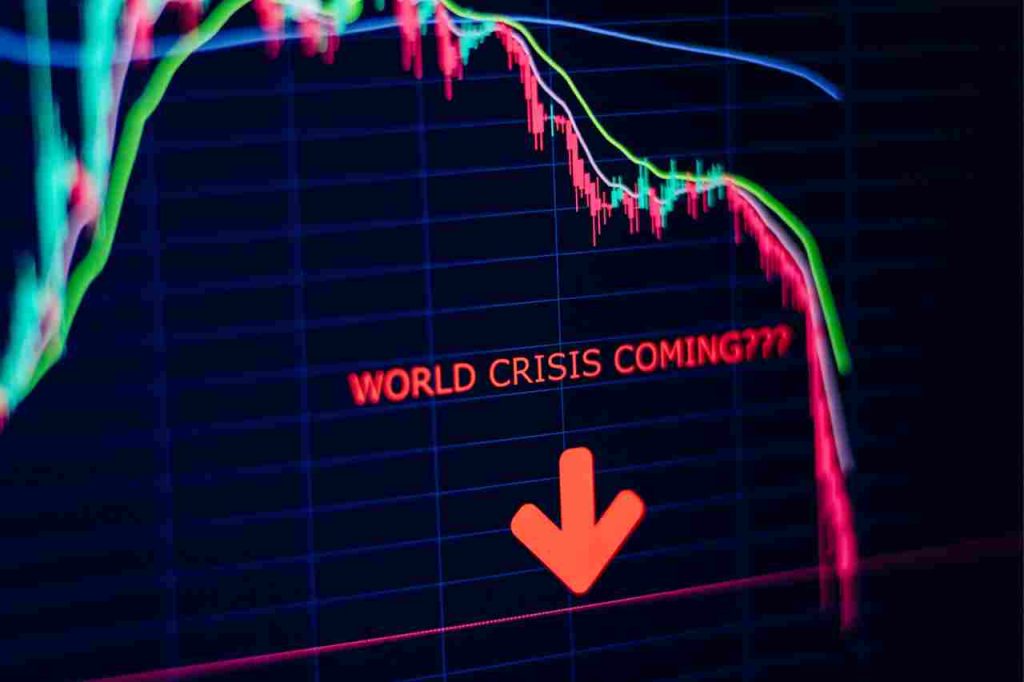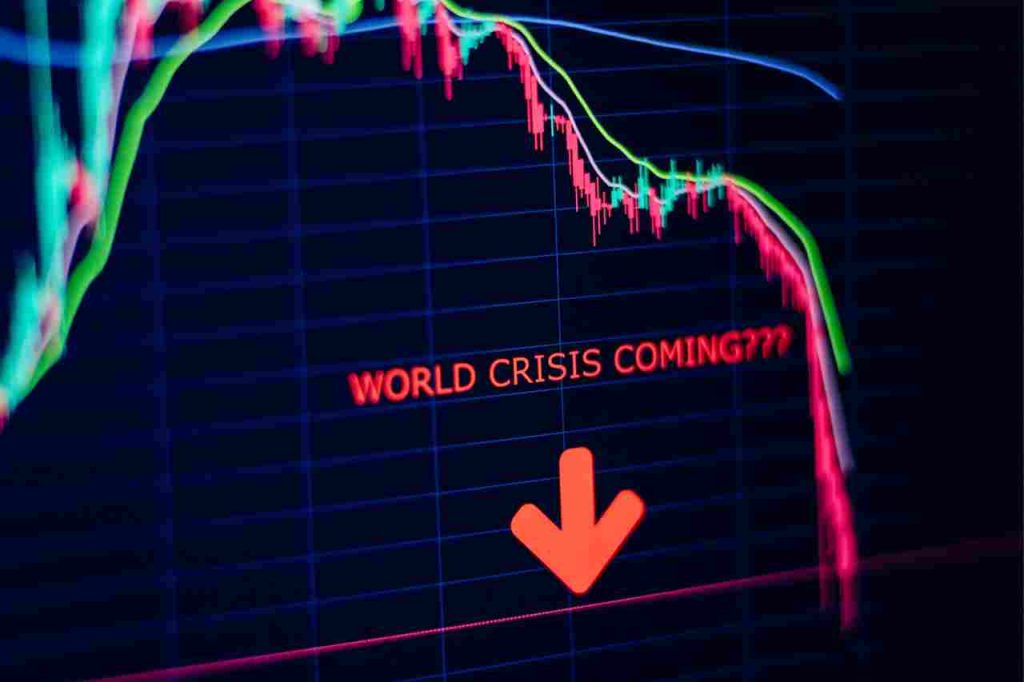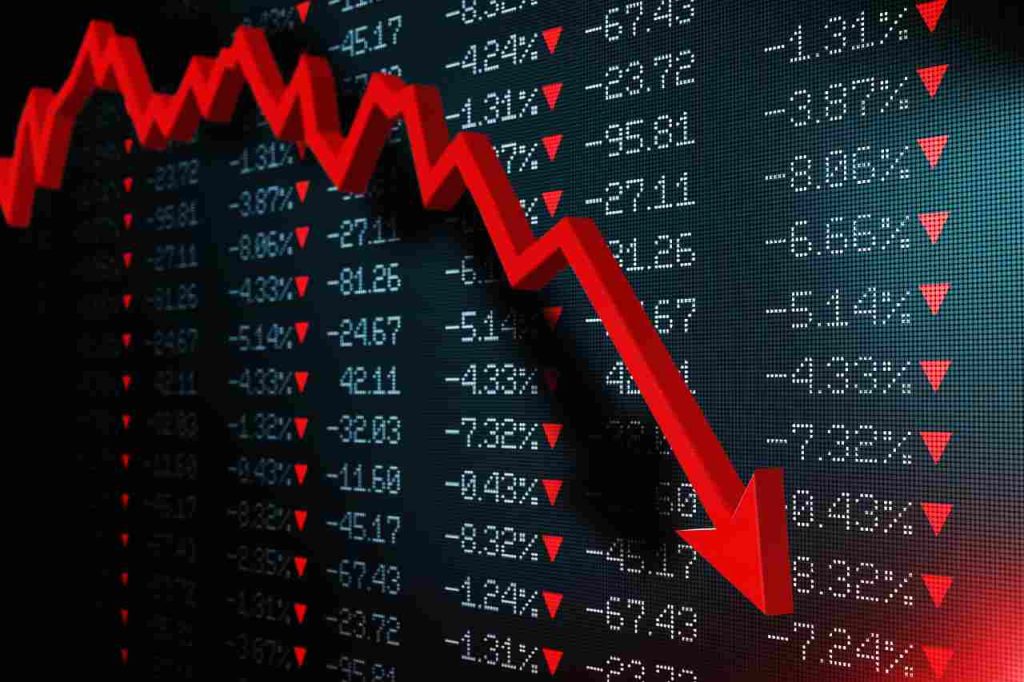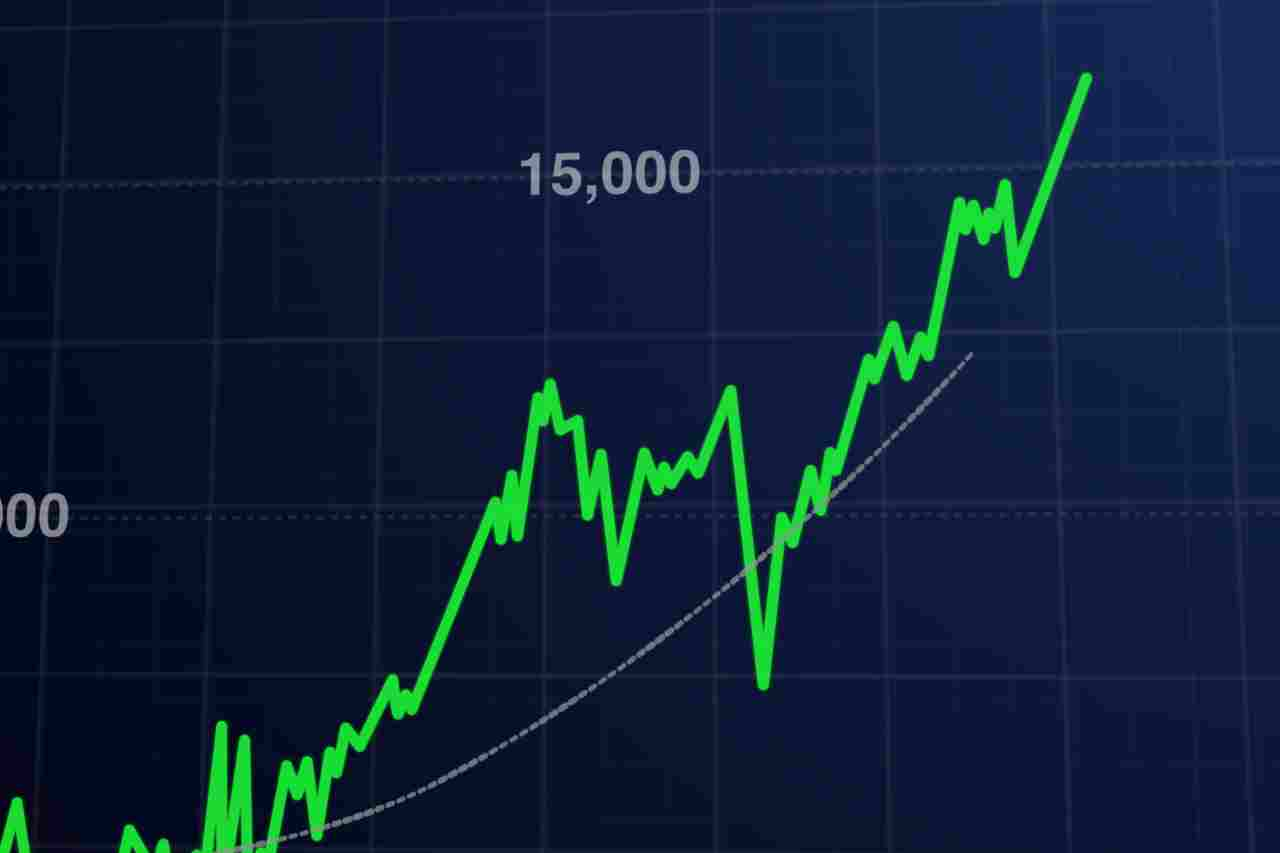Table of Contents
How to prepare for theNext Market Crash? It might be difficult to forecast when the next market meltdown will happen because of how unpredictable the stock market is.
Even while it is hard to completely prevent market disasters, there are things you can do to mentally and financially be ready for the next downturn. This blog post will share 5 tips to help you prepare for the next market crash.
Prepare For the Next Market Crash – Diversify your investments
To lower the total risk of your portfolio, diversification is a technique that entails distributing your assets across several asset classes, sectors, and geographical areas.
By diversifying your investments, you can avoid having all your eggs in one basket and minimize the impact of a market downturn on any one particular investment.
There are several ways to diversify your investments:
Invest in different asset classes
To diversify your assets over several asset classes, think about investing in a variety of equities, bonds, properties, and commodities.
By diversifying over a number of asset classes
, you may lower the overall risk of your portfolio, as each asset class has a different amount of risk and return.

Invest in different industries.
Consider investing in different industries within each asset class, such as healthcare, technology, finance, and consumer goods.
By investing in different industries, you can benefit from the growth of multiple sectors and minimize the impact of any particular industry that may decline in value.
Invest in different geographic regions.
Consider investing in different countries and regions to diversify your portfolio geographically.
By investing in different regions, you can benefit from the growth of multiple economies and minimize the impact of any one particular country or region that may experience economic or political instability.
Use mutual funds or exchange-traded funds (ETFs)
You may invest in a diverse portfolio of stocks or bonds using investment vehicles like mutual funds and ETFs.
These funds are run by qualified investment managers who choose a variety of assets to achieve the investment goal of the fund.
Rebalance your portfolio regularly.
To make sure that your investments are in line with your investment objectives, risk tolerance, and time horizon, periodically examine and rebalance your portfolio.
Rebalancing involves selling securities that have exceeded their target allocation and reinvesting the proceeds in those below their target allocation.
Diversification may aid in lowering the overall risk of your portfolio
, but it does not ensure success or safeguard against loss.
You may profit from the expansion of several markets and industries by diversifying your investments while reducing the effect of any one investment that may experience a value fall.

Avoid making rash decisions.
When the stock market crashes, it’s natural to feel anxious and want to take action to protect your investments.
However, avoiding rash decisions that could hurt your long-term financial goals is essential.
Here are some tips for avoiding impulsive decisions during a market crash:
Stick to your investment plan
Sticking to your investment plan is crucial during a market crash. Your investment plan should reflect your long-term goals, risk tolerance, and time horizon.
It’s necessary to remember that market downturns are a normal part of investing, and trying to time the market or make drastic changes to your investment plan during a downturn can harm your long-term financial goals.
Here are some tips for sticking to your investment plan during a market crash:
Review your investment plan: Take the time to review your investment plan and ensure that it aligns with your long-term financial goals. If your objectives or financial condition change, make any required plan revisions, but stay away from making changes based only on short-term market volatility.

Stay focused on the long-term: Keep a long-term perspective on your investments and avoid making decisions based on short-term market movements.
Investing is a speed, not a sprint, and the market has historically always recovered from downturns and continued to grow over the long term.
Rebalance your portfolio: Regularly rebalancing your portfolio can ensure that your investments are aligned with your investment plan and risk tolerance.
Rebalancing involves selling securities that have exceeded their target allocation and reinvesting the proceeds in those below their target allocation.
Diversify your investments: Diversification can reduce the overall risk of your portfolio and minimize the impact of any particular investment that may decline in value. Think about investing in a combination of stocks, bonds, and other assets like commodities or real estate.
Seek advice from a professional: If you’re feeling uncertain or anxious about your investments during a market crash, consider seeking advice from a financial advisor or investment professional.
They can guide how to manage your investments during a market downturn and help you stay focused on your long-term financial goals.
Sticking to your investment plan and avoiding impulsive decisions during a market crash can help protect your investments and achieve your long-term financial goals over time.

Avoid trying to time the market.
A dangerous tactic that seldom works is trying to time the market during a market collapse. It’s difficult to predict the bottom of a market downturn, and trying to do so can lead to impulsive decisions that harm your long-term financial goals.
Here are some tips for avoiding trying to time the market during a market crash:
Stick to your investment plan: Your investment plan should reflect your long-term goals, risk tolerance, and time horizon. Avoid changing your investment plan based on short-term market fluctuations or trying to time the market based on fear or greed.
Avoid emotional decision-making: Making decisions based on emotions can lead to impulsive actions that harm your investments. Instead, try to remain rational and objective when making investment decisions, especially during a market crash.
Focus on the long-term: Keep a long-term perspective on your investments and avoid making decisions based on short-term market movements.
Keep in mind that market declines are a regular occurrence in the investment world and that, historically, the market has always recovered and grown over the long run.
Dollar-cost average: Dollar-cost averaging involves investing a fixed dollar amount at regular intervals, regardless of market conditions. This can reduce the impact of short-term market fluctuations and minimize the risk of trying to time the market.

Seek advice from a professional: If you’re feeling uncertain or anxious about your investments during a market crash, consider seeking advice from a financial advisor or investment professional.
They can guide how to manage your investments during a market downturn and help you stay focused on your long-term financial goals.
By avoiding trying to time the market during a market crash and sticking to your long-term investment plan, you can help protect your investments and achieve your financial goals over time.
Don’t panic sell
During a market crash, panic selling and liquidating your investments can be tempting. However, selling during a downturn can lock in losses and harm your long-term financial goals.
Here are some tips for avoiding panic selling during a market crash:
Stay focused on your long-term goals: Investing is a long-term game, and short-term market fluctuations are a normal part of the process. Avoid making decisions based on fear or panic, and maintain attention to your long-term financial objectives.
Review your investment plan: Take the time to review your investment plan and ensure that it aligns with your long-term goals and risk tolerance. Based on changes in your financial circumstances, make any required modifications; however, stay away from making changes based on momentary market fluctuations.

Don’t follow the herd: It’s easy to get engrossed in the dread and terror of a market crisis. However, following the herd and selling your investments can be costly. Remember that the market has historically always recovered from downturns and continued to grow over the long term.
Rebalancing your portfolio: Rebalancing your portfolio can help ensure that your investments are aligned with your investment plan and risk tolerance. Rebalancing involves selling securities that have exceeded their target allocation and reinvesting the proceeds in those below their target allocation.
Seek advice from a professional: If you’re feeling uncertain or anxious about your investments during a market crash, consider seeking advice from a financial advisor or investment professional.
They can guide how to manage your investments during a market downturn and help you stay focused on your long-term financial goals.
Keep a long-term perspective.
Remember that investing is a long-term game. While a market crash can be stressful, history has shown that the market has always recovered from downturns and continued to grow over the long term.
Seek advice from a professional
If you’re anxious or uncertain about your investments during a market crash, consider seeking advice from a financial advisor or investment professional.
They can guide how to manage your investments during a market downturn and help you stay focused on your long-term financial goals.
Stay informed about the market.
Staying informed about the market can help you make informed investment decisions during a market crash.
Here are some tips for staying informed about the market:
Read financial news
You may comprehend market trends and make wise investment choices by following financial news. Consider subscribing to financial publications or setting up alerts for breaking news.

Follow market indicators
Market indicators can provide insights into the overall health of the market. To understand market trends, follow vital indicators such as the S&P 500 or the Dow Jones Industrial Average.
Analyze historical market data.
Analyzing historical market data can help you understand how the market has performed during past downturns and recoveries. This can provide insights into managing your investments during a market crash.
Stay in touch with your financial advisor.
Your financial advisor can guide how to manage your investments during a market downturn. Stay in touch with them to ensure your investment plan aligns with your long-term goals and risk tolerance.
Attend investment seminars
Attending investment seminars or webinars can provide valuable insights into market trends and investment strategies. Consider attending seminars hosted by your financial institution or other reputable organizations.
You may make wise financial selections during a market meltdown and avoid making hasty judgments based on fear or panic if you keep up with the market.
Remember to read financial news, follow market indicators, analyze historical market data, stay in touch with your financial advisor, and attend investment seminars to stay informed about the market.
Have a solid emergency fund.
A solid emergency fund protects your financial stability during a market crash.
Tips for building a solid emergency fund:
Determine your expenses
Start by determining your monthly expenses, including bills, rent or mortgage payments, groceries, and other essential costs. This will enable you to calculate the amount you should set aside as an emergency fund.
Aim for 3-6 months’ worth of expenses.
Financial experts generally recommend having 3-6 months’ worth of expenses saved in an emergency fund.
This can help cover unexpected expenses like job loss, medical bills, or car repairs.
Save consistently
Set aside some of your monthly salary and make it a priority to save for an emergency fund. Set up a direct transfer from your paycheck to your emergency fund to automate your savings.
Keep your emergency fund separate.
It’s essential to keep your emergency fund separate from your other savings and investments to avoid dipping into it for non-emergency expenses.
Replenish your emergency fund.
If you need to use funds from your emergency fund, make replenishing it a priority. This will help ensure you have enough funds available in another emergency.
Having a solid emergency fund can help protect your financial stability during a market crash.
Remember to determine your expenses, aim for 3-6 months’ worth, save consistently, keep your emergency fund separate, and replenish your emergency fund when necessary.
Consider the long-term perspective.
During a market crash, keeping a long-term perspective on your investments is essential.
Here are some tips for considering the long-term perspective during a market crash:
Remember that investing is a long-term game
Investing is a long-term game, and market downturns are a normal part of the process. While it may be difficult to see the value of your investments decline in the short term, remember that the market has historically always recovered from downturns and continued to grow over the long term.
Don’t make decisions based on fear or panic.
During a market crash, making decisions based on fear or panic can be tempting. However, this could result in rash choices that jeopardize your long-term financial objectives.
Instead, keep your eyes on your long-term objectives and refrain from basing your choices on transient changes in the market.
Consider the power of compound interest.
The power of compound interest can help your investments grow over time. Even if the market experiences a temporary downturn, your investments can grow through compound interest over the long term.
Avoid trying to time the market.
It might be expensive to try to time the market. Instead, focus on building a diversified investment portfolio that aligns with your long-term goals and risk tolerance.
Remember your investment plan.
Keep in mind to follow your investing strategy and refrain from making adjustments based on transient market fluctuations.
Regularly assess your investing strategy to make sure it’s in line with your long-term objectives and make any required modifications in response to changes in your financial condition.
Market crashes – Conclusion
Market crashes can be scary and unpredictable, but by taking steps to prepare yourself, you can mitigate some of the financial and emotional impacts.
By diversifying your investments, avoiding rash decisions, staying informed about the market, and having a solid emergency fund, you can better weather the storm when the next market crash occurs.
Remember, the key is to stay calm and avoid making impulsive decisions that could hurt you in the long run. You may be ready for the next market meltdown and emerge stronger and more financially secure by keeping these suggestions in mind.










